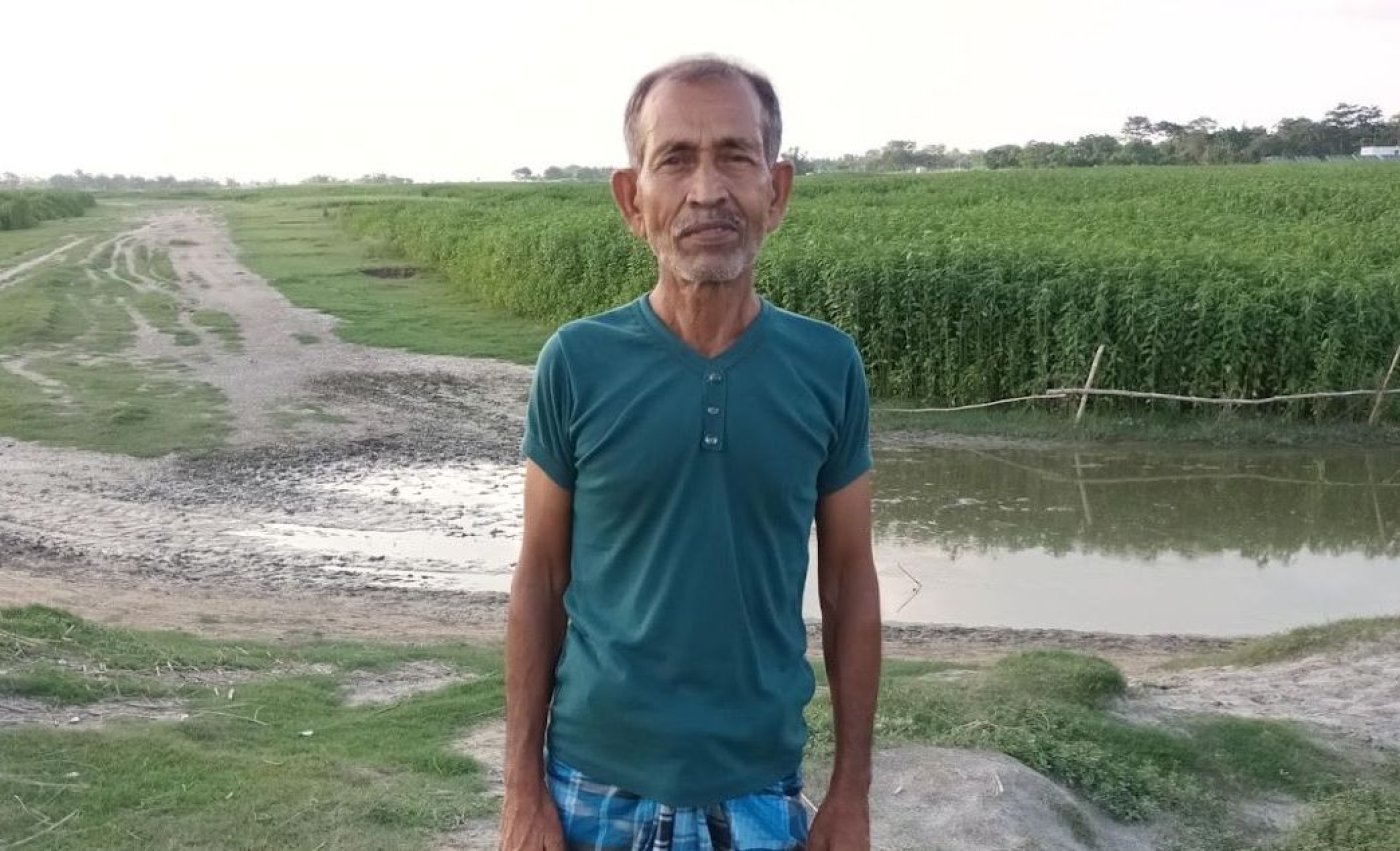
By Panchali Ray
Nirmal Char, Murshidabad district, West Bengal: “In the Sundarbans, tigers eat you. Here, it’s the BSF.”
As we sat sipping tea on his mud porch, Rana Ahmed spoke quietly, almost meditatively. A reserved man with a weathered face and a faded cotton gamcha around his neck, he was referring to India’s Border Security Force (BSF).
Outside his modest home in Nirmal Char—a shifting sandbar island in West Bengal’s Murshidabad district—we talked about the geopolitical limbo in which he and thousands of other Bengali Muslims live.
Like most char dwellers or charuas, Rana’s home was simple: two thatched mud rooms, an open-air kitchen, and a shed for livestock, if there were any. No one here builds anything permanent. Every charua or char dweller knows the river can change course any day.
When it does, they will have to move, seeking new land and new homes along its uncertain path.
This certainty of movement and the unpredictability of the river have long defined life in the chars. But that mobility is now under strain. Once porous, the riverine frontier with Bangladesh has hardened into a securitised border that demands proof of sedentariness—of fixed belonging.
It’s a kind of statelessness. “Even to access our own land on the Indian side, we have to show citizenship documents to the BSF every day,” said Rana, in his early 50s, a father of four. Like his father before him, he’s farmed black gram and jute on these shifting lands for over 30 years.
“The security forces are always suspicious of us,” said Rana. “They don’t treat us like citizens.”
I was at Rana’s home to listen to stories of erosion and the lingering wounds of Partition. His uncles migrated to East Pakistan in the late 1960s, but his father stayed.
“You can’t just give up land and walk away,” he said. “The border split my grandfather’s land—half ended up in East Pakistan, half in India. It was decided that my uncles would go there, and my father would till what remained here.”
This story was originally published in article-14.com. Read the full story here.

